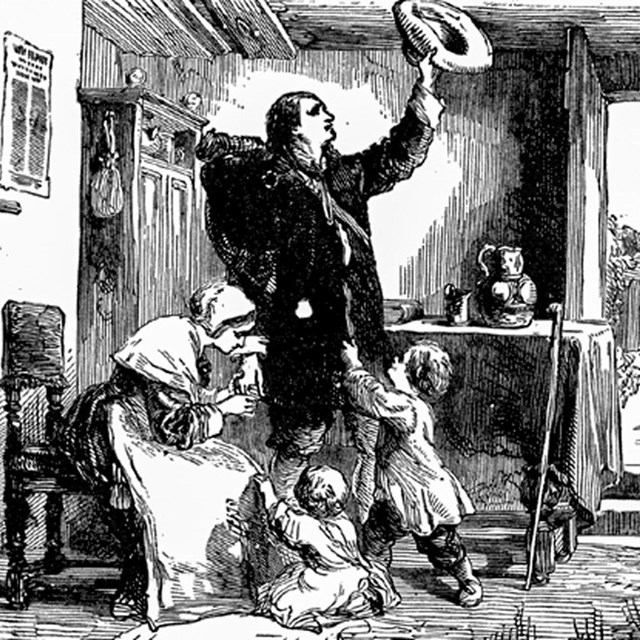
However, there was no formal plan that dictated how Providence should be governed. Plymouth had the Mayflower Compact and Massachusetts Bay had a Charter from the King. In order to make decisions in the town, the settlers needed to form a government. Every two weeks the heads of household gathered to consider issues. Unlike other English settlements where only church members could vote, every head of household (male or female) was given that right in Providence. In addition, no taxes were collected to support any church. They agreed that the decisions reached by the majority would be the binding decisions for the settlement. But this would only be the case in civil matters. Matters of religion were left up to the individual. The case of Joshua and Jane Verin addresses the issues that arose based on some of these radical beliefs. Joshua chose not to attend religious services, while his wife attended church meetings at Roger Williams’ house next door. Joshua did not want his wife to attend and beat her for not following his wishes. Town members reprimanded Joshua and disenfranchised him. They also casted him out from Providence. He was not banished for beating his wife but for violating her freedom of conscience. Learn More
|
Last updated: October 7, 2020



